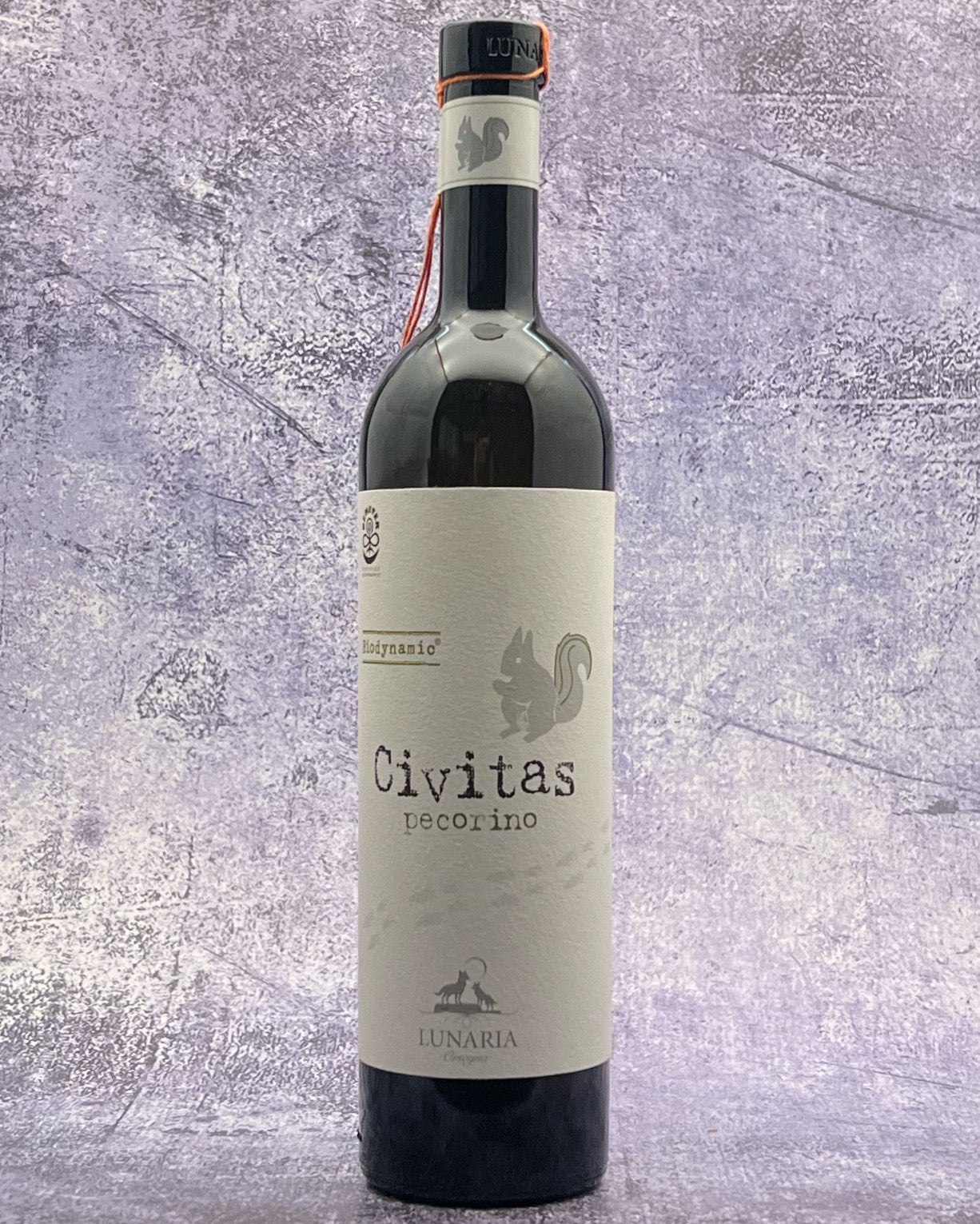Description
From: Abruzzo, Italy
Varietal: Pecorino
Taste: The 2023 Lunaria Civitas Pecorino, Terre di Chieti IGP, is a captivating white from the Abruzzo region of Italy. This vintage features a bright, pale straw color and opens with a fragrant bouquet of ripe pear, green apple, and citrus zest, accompanied by subtle floral and mineral notes. The wine is fresh, intense, and refreshing on the palate, with a vibrant acidity that highlights flavors of lemon, white peach, and a hint of almond. Its clean and lively finish is marked by a pleasant minerality, making it an elegant and versatile choice for various dishes.
Pairing: This Pecorino pairs beautifully with various dishes, but our current fave pairs this alongside something like crispy lemon-garlic shrimp. The wine’s zesty citrus notes and crisp acidity complement the bright flavors of the lemon and garlic in the shrimp, while its minerality enhances the dish's freshness. The herbaceous orzo harmonizes with the wine’s floral and green apple nuances, creating a well-balanced and delightful culinary experience. Other pairing ideas include matching this with picnic fare like cold-fried chicken, tuna or chicken salad sandwiches, fish or potato tacos, tamales, grilled fish or shrimp, and Mediterranean-inspired flatbreads, dips, and rice plates.
Crispy Lemon-Garlic Shrimp with Herbed Orzo
About: Cantina Orsogna, formed in 1964, is a cooperative company of 600 farmers committed to Organic & Biodynamic Farming and conservation of Majella National Park.
Lunaria wines are certified as organic, biodynamic, and vegan.
The story of Lunaria began in 2003 when some winemaker members of the Cantina Sociale di Orsogna, already organic, embraced the idea promoted by the cooperative of managing the vineyards according to the principles of biodynamic agriculture, sharing the importance of safeguarding the territory, its biodiversity and agricultural experiences and traditions.
Winemakers, especially biodynamic ones, are fundamental figures for the territory, and it is necessary to safeguard them from abandoning a tradition so important for viticulture and biodiversity.

